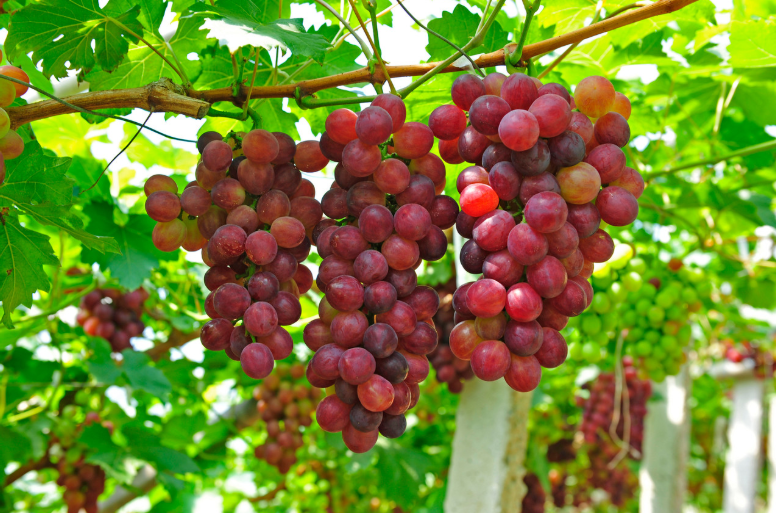A thriving fruit garden begins with selecting the right trees and nurturing them with care. A quality plant nursery for fruit trees provides the foundation for healthy growth, high yields, and long-lasting enjoyment. From saplings to mature specimens, nurseries offer a wide range of options that suit different climates, soil types, and garden spaces.
Fruit trees require attention to factors such as sunlight, soil composition, and water availability. By sourcing plants from a reputable nursery, gardeners can ensure that their trees are disease-free, well-cultivated, and ready to thrive in their specific environment. Whether you are a novice gardener or an experienced horticulturist, choosing the right nursery is the first step toward a bountiful harvest.
Selecting the Right Trees
Choosing the appropriate fruit trees depends on your local climate, garden space, and personal preferences. Popular fruit trees include apples, peaches, pears, cherries, and citrus varieties. Nurseries often offer detailed guidance on which species perform best in specific regions and soil types.
Benefits of Using a Plant Nursery
A professional plant nursery provides numerous advantages for gardeners:
- Healthy, Disease-Free Plants: Nurseries carefully cultivate trees to ensure they are robust and ready to grow.
- Expert Guidance: Staff can advise on planting, pruning, fertilization, and pest control strategies.
- Variety: Nurseries offer a broad selection of fruit tree varieties, including rare and heirloom species.
- Quality Assurance: Trees are grown under controlled conditions, ensuring strong root systems and optimal growth potential.
- Additional Supplies: Many nurseries provide fertilizers, soil amendments, mulch, and tools necessary for successful gardening.
These benefits make nurseries an indispensable resource for anyone looking to cultivate healthy, productive fruit trees.
Planting and Care Tips
Proper planting and care are crucial for maximizing the yield and longevity of fruit trees:
- Site Selection: Choose a location with adequate sunlight, well-draining soil, and sufficient space for tree growth.
- Soil Preparation: Enrich the soil with organic matter and ensure proper pH levels to promote nutrient absorption.
- Watering: Young trees need regular watering to establish roots, while mature trees may require deep, infrequent watering.
- Pruning: Regular pruning encourages healthy growth, improves air circulation, and increases fruit production.
- Fertilization: Use appropriate fertilizers at key growth stages to support flowering and fruiting.
- Pest and Disease Management: Monitor for common pests and diseases, and take preventive or corrective action as needed.
By following these practices, gardeners can cultivate fruit trees that thrive year after year, yielding abundant harvests.
Advantages of Buying Locally
Purchasing from a local plant nursery offers additional benefits beyond plant quality:
- Regional Expertise: Local nurseries understand climate-specific challenges and can recommend suitable varieties.
- Immediate Support: Staff can provide in-person guidance for planting, care, and troubleshooting.
- Sustainability: Buying locally reduces transportation emissions and supports local economies.
- Seasonal Availability: Local nurseries stock trees that are ready for planting in the appropriate season.
These advantages ensure that gardeners receive personalized advice and healthy plants adapted to their environment.
Additional Considerations
A fruit garden is not just about planting trees—it’s about creating an ecosystem that thrives. Consider these additional tips for a successful harvest:
- Spacing: Proper spacing allows adequate sunlight and airflow for each tree, reducing the risk of disease.
- Mulching: Helps retain soil moisture, suppresses weeds, and regulates soil temperature.
- Pollination: Some fruit trees require cross-pollination, so planting compatible varieties nearby can increase yields.
- Regular Observation: Frequent monitoring allows early detection of pests, diseases, or nutrient deficiencies.
By approaching fruit gardening holistically, gardeners can create a balanced environment that maximizes both the health and productivity of their trees.
Conclusion
A successful fruit garden starts with sourcing trees from a reputable plant nursery. Healthy, well-cultivated trees, combined with proper planting and care, lay the groundwork for a bountiful harvest. Incorporating complementary plants like Privet Wax Leaf Privet can further enhance your garden’s productivity and aesthetic appeal.
By selecting the right nursery, choosing the appropriate varieties, and following expert guidance, gardeners can enjoy years of fresh, homegrown fruit. Investing in quality plants and knowledge ensures a thriving garden that provides both sustenance and satisfaction for years to come.




